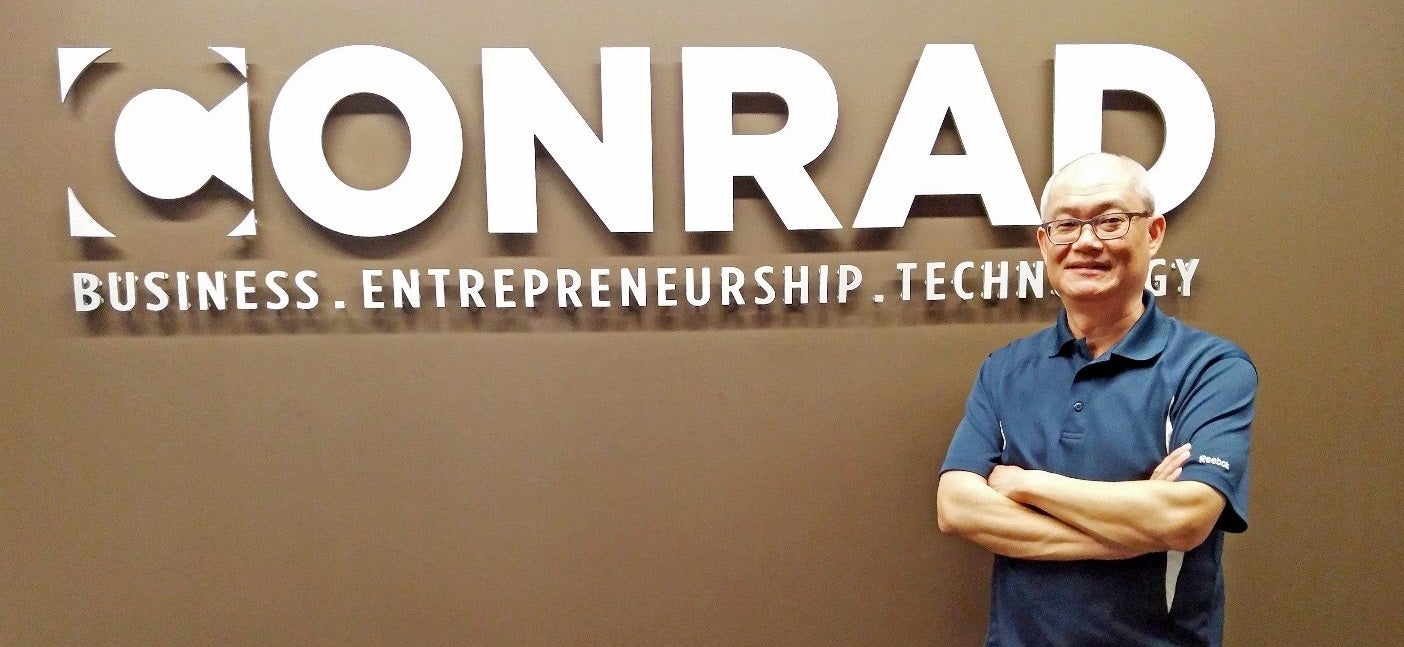
Dr. Wayne Chang, Conrad Business, Entrepreneurship and Technology Centre, Faculty of Engineering
By Lisa Kabesh, Communications Associate, CTE
When asked about Dr. Wayne Chang, Lecturer and Enterprise Co-op Program Coordinator at the Conrad Business, Entrepreneurship and Technology Centre, a former student offered exceptional commentary: “You become so driven to build something successful,” he explained, “that you learn much more, much faster, and in ways that expand beyond the classroom.” I had met Chang the week prior and was not surprised. He is a fast-talker who is remarkably clear considering the pace and energy with which he discusses his course. At the same time, he exudes friendliness and support by checking in with those he meets to see how he can be of help. It’s easy to imagine this energy and engagement pervading a classroom and inspiring students.
But Chang’s energy doesn’t confine itself to the classroom—his Business, Entrepreneurship, and Technology (BET) 300 students are accustomed to fieldtrips. Classes have been held at the Communitech Hub, Velocity Garage, St Paul’s GreenHouse, and the Stratford Digital Media Campus to allow students to become familiar with key elements in Waterloo’s entrepreneurial ecosystem. And Wayne’s not the only source of inspiration available to them. A focus on group work means that students have ample opportunity to learn from and with one another, and a mini-visiting speakers’ series gives students the chance to learn from former students and successful entrepreneurs (including many who are both, as is the case with the CEOs and founders of Medella Health, LightBot, and Sesame). So painting Chang as a charismatic “sage on the stage” is misleading. To get a better sense of why students are so engaged in his class, it’s important to look at its design.
I honestly think I learned more through Foundations of Venture Creation (BET 300) and Enterprise Co-op than I did through my entire undergrad up to that point. Instead of learning theory in a lecture hall to prepare for a test, Wayne enables students to discover utility in their existing knowledge by creating a venture. You become so driven to build something successful you learn much more, much faster, and in ways that expand beyond the classroom.
In BET 300, Chang seeks to introduce students to the processes involved in moving a start-up idea from concept to launch. That’s the advertising on the package (I’ve drawn that language directly from the course description), and it certainly reflects what students will get out of the course. Students learn about business plans, value propositions, customer discovery processes, and much more in the context of their own venture ideas. But they learn about these methods in a way that models the start-up process itself. In other words, Chang has calibrated in-class activities, course expectations, assignments, and assessments in such a way that students work collaboratively, build networks, refine entrepreneurial communication skills, and test and re-test their work.
Noting that as an elective, BET 300 has no “reluctant students,” Chang is the first to acknowledge that students’ internal motivation plays an important role in the class’s success. In order to enrol in the course, students must come prepared with a start-up idea ready for development. So when Chang says that “this course is not about marks,” students can really believe him—they are focused on finishing the course that much closer to a successful launch.
Maintaining students’ intrinsic motivation even as their start-up ideas are challenged in the course is a priority for Chang. Ongoing, formative feedback plays an important role in achieving this balance. An emphasis on group participation and presentations means that students are challenged by their peers, by Chang, and by TAs in a safe but critical environment. And because assessment focuses on how effectively and deeply students explore, test, and re-test their venture ideas rather than on the success of those ideas, students are free to critically examine and even reshape their original ideas—moving backward, in a way, in order that they might move forward as part of the iterative process of design.
Between conception and launch, the original idea behind a start-up will undergo many iterations, and, as Chang points out, might not be recognizable in the final form the start-up eventually takes. Chang hopes to see his students prepared for this non-linear, unpredictable process. When it comes to a setback, challenge, or a wholesale redesign, Chang wants his students to know this: it’s not failure, it’s iteration.
Read more Teaching Stories
Tip Sheets
CTE has developed more than 100 Teaching Tips. Each one succinctly conveys useful ideas and practical methods for effective teaching. Some Teaching Tips relevant to the strategies mentioned in this Teaching Story include: